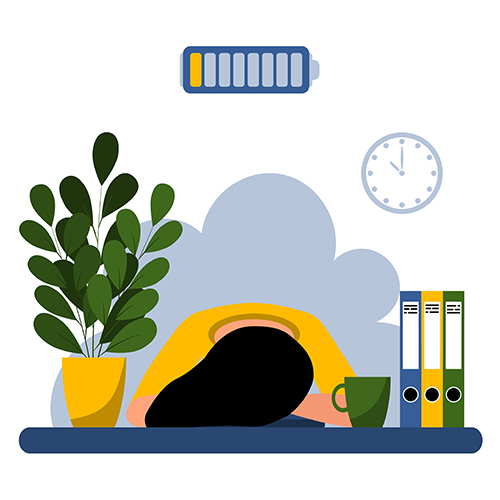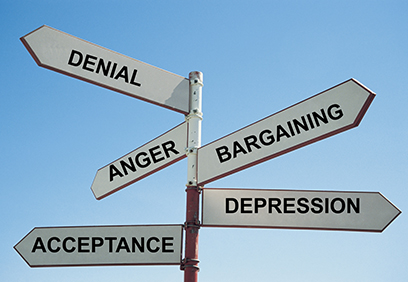Sometimes poor mental health can be triggered by a certain situation but it can also affect anyone at any time, for any or no reason at all.
Support for mental health problems will be different for everyone and can be found in a number of places, but sometimes knowing where to find support can be difficult.
As you read on, we lay out some pathways to further advice and guidance for mental health including signposting you to support services. Many of these provide advice for a variety of mental health and wellbeing needs, but some will respond to specific circumstances that may impact your mental health.
Talking about your mental health
Talking about your mental health can be important but many experience difficulties opening up. This is sometimes due to the stigma or fear surrounding mental health.
Time to Change Wales tackles this stigma and acknowledge that though many of us are likely to be affected by mental health problems discussing mental illness can still be considered a taboo. Time to Change Champions lead the campaign and you may find it useful to read their stories and how talking about their mental health helped them.
If you are struggling to talk about your own mental health, or understand someone else’s, Time to Change Wales provides lots of useful advice and resources on:
- The facts around mental health
- Information on different mental health conditions
- How to tell someone about your mental health
- Talking and listening to someone else about their mental health
Many public figures have spoken out about their experience with mental health. Watch below where writer and illustrator Matthew Johnstone worked with the World Health Organisation to talk about overcoming the "black dog of depression".
Actor David Harewood spoke in the recent Open University and BBC collaborative documentary, Psychosis and Me, about his experience of diagnosis and treatment for Psychosis. Trisha Goddard, Jim Brown and Stephen Fry examine feelings of fear and sadness affecting their everyday lives and discuss their use of mental health services.
Remember, everyone’s experience with mental health is different. You should never feel under pressure to talk about your mental health, but you may find that talking helps. Here are some further tips if you are struggling to talk about your mental health:
- Write a letter if you are afraid to talk face-to-face.
- Talk to someone who doesn’t know you such as a GP, support service or therapist if you don’t feel comfortable talking to a loved one.
- Start by journaling and then transition to speaking.
- Practice speaking in the mirror before you talk to someone if you are struggling to do so.
- Remember that you will probably feel a great sense of relief after talking with someone.
- Remember that you are not alone.
If you want to speak to a professional or seek further support, there any many organisations you can contact. A range of support services are listed at the bottom of this article.
Studying and mental health
 Our mental health and wellbeing can fluctuate from day-to-day. Studying at University in any capacity can absorb your time, which can make it harder for you to take the time to look after your mental health.
Our mental health and wellbeing can fluctuate from day-to-day. Studying at University in any capacity can absorb your time, which can make it harder for you to take the time to look after your mental health.
It is very common to experience difficulties during your student journey. You may also find that studying increases your levels of stress and anxiety, as well as exacerbating pre-existing mental health problems.
These difficulties come in many varied forms and can affect you and your studies in different ways. Whether you have a diagnosed mental health problem or not, understanding how to identify when your mental health and wellbeing may be suffering is important so you can take action. First and foremost, so you can feel safe, supported and well but it can also help you study effectively and thrive at university.
Remember, you’re not alone; The Open University currently support over 10,000 students who have told us that have a mental health problem. If you feel as though you’re struggling to cope with your studies your education provider will have pathways to help.
If you are studying with The Open University, please talk to your Student Support Team or tutor. If you are studying at another institution search for your institutions name and ‘student support’ to get information on who to speak to. Alternatively, speak to a representative at your student’s union or your lecturers and tutors.
Grief and bereavement
Losing someone important to you can be devastating, whether it’s a partner, family member, friend or colleague. Grief affects everyone in different ways. You’re likely to experience a range of emotions as you gradually come to terms with your loss. It's quite common for people to feel:
-
Shock and numbness.
-
Guilt about something you said or did not say, or not being able to prevent the death of your loved one.
-
Tiredness or exhaustion.
-
Anger – towards yourself, the person you’ve lost, other family members, professionals or about the reason for your less.
-
Overwhelming sadness with lots of crying.
These powerful feelings may appear unexpectedly, but they may not be there all the time. There is no right or wrong way to feel, but however you are feeling you can seek advice and support from the services listed below.
 If you are supporting someone who has experienced a loss, simple acts of kindness and expressions of concern can make a big difference to help bereaved people. However, death can be hard to talk about and many people struggle to know what to say when trying to support someone. If you’re caring for someone who has lost someone Mind provide a wealth of advice on how to help them as best you can.
If you are supporting someone who has experienced a loss, simple acts of kindness and expressions of concern can make a big difference to help bereaved people. However, death can be hard to talk about and many people struggle to know what to say when trying to support someone. If you’re caring for someone who has lost someone Mind provide a wealth of advice on how to help them as best you can.
An introduction to death, dying and grief invites you to think more deeply about different perspectives on death; as well as expressions of grief, to help you better understand the emotional processes yourself, or someone else, may be going through.
It is also important to take care of your own wellbeing whilst supporting others. If you, or someone you’re supporting, are struggling you can contact the services below for further help and advice.
Further mental health advice and support
You have read some advice and guidance on managing your mental health and wellbeing but below information will guide you towards support services that may further help you.
You may find you need support with something specific that has happened, or is currently happening, in your life. It can be important to get specific support first as it may address any issues linked to and affecting your mental health. Mind provide a comprehensive list of UK wide services which may help such as crisis services, support for addiction and dependency, advice on domestic abuse and more.
Please be mindful that some of these services are only available in certain areas of the UK.
If you need emergency assistance, call 999 or to go to Accident and Emergency (A&E) for immediate help.
Acknowledgements
This article was written by The Open University in Wales in partnership with Wrexham Glyndŵr University, Addysg Oedolion Cymru Adult Learners Wales and the Open University Students’ Association. Much of the content in this article was incorporated using feedback from a survey of Welsh part-time and Higher Education students in 2020. Links are directly embedded throughout the article to take to other useful resources but in some cases information and advice has been sourced and repurposed from the following organisations: National Health Service (NHS), The Open University Help Centre, Mind Cymru and Time to Change Wales.
This resource is part of the 'Wellbeing and Mental Health Collection' created by the Open University in Wales. You can learn more and find courses, articles and other activities on the collection's homepage.






Rate and Review
Rate this article
Review this article
Log into OpenLearn to leave reviews and join in the conversation.
Article reviews